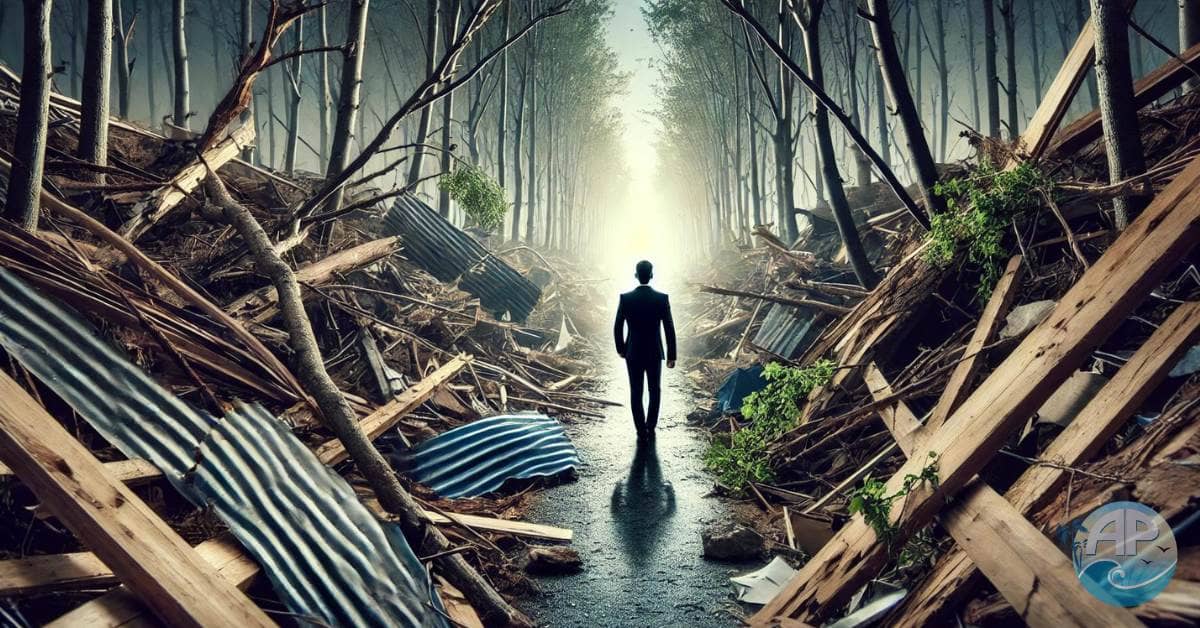Master the Art of Mental Preparedness to Stay Calm, Focused, and Resilient in High-Stress Situations.
Table of Contents
- Why Mental Preparedness Matters
- Building Resilience with Mental Prep
- Key Strategies for Mental Toughness
- Avoiding Common Crisis Mistakes
- Mental Strength for Smart Survival
- Long-Term Challenges & Preparedness
- Conclusion: Taking Control Mentally
Introduction: Why Being Mentally Prepared is Key
When facing a crisis, strength alone won’t get you through—this is why being mentally prepared is the real key to survival. Whether it’s a natural disaster or a personal emergency, your ability to stay calm, think clearly, and act decisively will make the biggest difference in how you handle adversity.
“Survival is 90% mental, and 10% physical.”
This blog explores how mental preparedness helps you manage high-stress situations with focus and clarity, ensuring you’re ready for whatever comes your way.
Want to dive deeper into overall preparedness? Check out this article: The Ultimate Guide to Emergency Preparedness and Self-Reliance.
How Mental Preparedness Builds Resilience
Mental preparedness is about more than just knowing how to handle stress—it’s about building resilience. When you’re mentally strong, you’re able to bounce back from difficult situations more quickly and with greater confidence.
Key benefits of mental preparedness:
- Clarity in chaos: Mental strength allows you to stay focused even when everything around you is falling apart.
- Reduced stress: With the right mindset, you’ll handle stress more effectively and avoid panic.
- Better decision-making: When you’re calm, you can assess situations logically and make smart choices.
Key Strategies for Mental Preparedness
Becoming mentally prepared doesn’t happen overnight. Here are practical strategies to help you build mental toughness:
- Mindfulness: Practicing mindfulness helps you stay present in the moment, which is crucial in a crisis. By focusing on the here and now, you can avoid overwhelming yourself with what-ifs and worst-case scenarios.
- Visualization: Mental visualization allows you to rehearse different scenarios in your mind. Imagine yourself calmly navigating through a crisis, and your brain will begin to hardwire those responses.
- Adaptability: Flexibility is one of the most important aspects of mental preparedness. In a crisis, things rarely go as planned, so having a flexible mindset helps you pivot quickly and adapt to changing circumstances.
- Problem-solving under pressure: Practice solving problems in stressful situations. This could be through real-life experiences or simulation exercises.
“Mental preparedness isn’t about avoiding stress—it’s about learning how to manage it effectively.”
Common Mistakes to Avoid in Crisis Situations
Even the most mentally prepared individuals can slip up in a crisis. Avoid these common pitfalls:
- Panic: Panic clouds your judgment. One of the biggest mistakes is letting emotions override rational thinking. Preparedness helps keep panic at bay by focusing on solutions rather than problems.
- Tunnel vision: Focusing too narrowly on one aspect of a problem can blind you to other risks or opportunities. A resilient mind can zoom out and assess the bigger picture.
- Over-reliance on plans: Plans are important, but they often need to change in the moment. Be mentally prepared to throw your plan out the window and improvise when necessary.
How Mental Strength Translates into Smart Survival
Mental preparedness is the foundation of smart survival. While physical resources like food, water, and first-aid kits are vital, none of them matter if you’re not mentally capable of using them wisely in a crisis.
Here’s how mental strength enhances your chances of survival:
- Calm decision-making: A calm mind can evaluate risks, assess resources, and make the right call, even when under pressure.
- Resilience in uncertainty: Crises are unpredictable. Mentally tough individuals can handle the uncertainty and make the best out of bad situations.
- Leadership: In a crisis, people look to those who remain composed. Mental preparedness enables you to lead, whether it’s your family, friends, or a broader community.
Mental Preparedness for Long-Term Challenges
Some crises, like natural disasters or economic downturns, have long-term consequences. Mental preparedness isn’t just about surviving the initial shock—it’s about maintaining resilience over time.
Key practices for long-term mental resilience:
- Routine: Establishing a daily routine in times of crisis helps maintain a sense of normalcy, which keeps stress levels down.
- Connection: Build strong social connections. Isolation can deteriorate your mental health, so make an effort to stay in touch with family, friends, or community groups.
- Physical fitness: There’s a strong connection between physical and mental resilience. Regular exercise can improve both your mood and mental clarity, helping you stay sharp in long-term crises.
Conclusion: Taking Control Through Being Mentally Prepared
Being Mentally prepared is the foundation of self-reliance in any crisis. By building mental strength and resilience, you equip yourself to handle high-stress situations with clarity and confidence.
“Your mind is your most powerful survival tool.”
Whether you’re facing a short-term emergency or a long-term challenge, being mentally prepared allows you to make smarter decisions, stay calm, and lead with strength.
Awakening starts with questioning everything!
As you continue on your journey towards awakening and seeking more of the truth, it’s important to surround yourself with resources and communities that share your vision. For deeper insights into living free, questioning the status quo, and embracing a path of independence, visit The Out Thinkers. Here, you’ll find thought-provoking content that challenges conventional thinking and offers guidance for those seeking clarity in a complex world.



